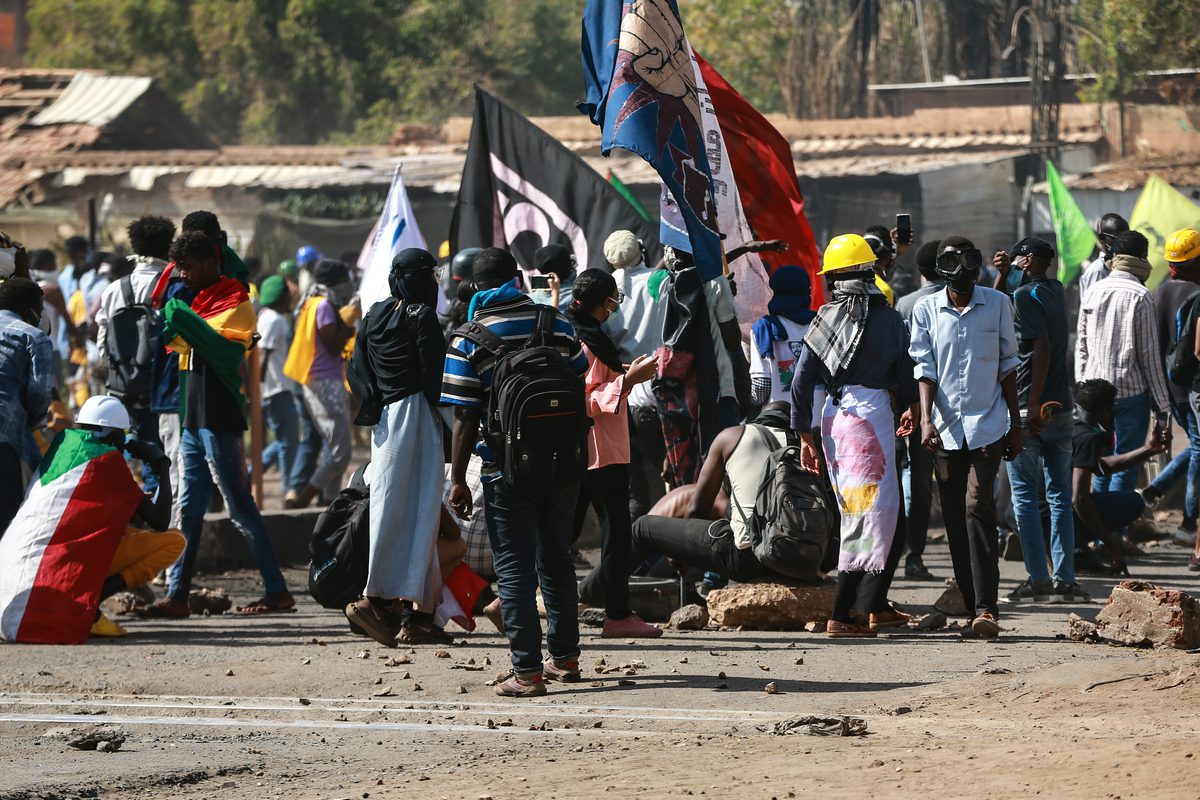

The European Union has joined a number of countries who have called on Sudanese authorities to commit to defending media freedoms and respecting the right to peaceful assembly.
The ambassadors and heads of missions of the European Union, Canada, Norway, Japan, Sweden, the United Kingdom, South Korea, the United States and the Netherlands issued the call yesterday in a joint statement “on freedom of expression and media freedoms in Sudan”.
The statement said: “Following the December 2018 uprising, Sudan took some important steps in improving human rights protection, however the military takeover of 25 October 2021 stalled, and in some cases, reversed that progress.”
“We are now witnessing sustained attempts to unduly limit freedom of expression and peaceful assembly. Protestors have been met with lethal force, activists arrested, local and foreign journalists detained and threatened, and media outlets raided,” it said
“As Sudan strives to get its political transition back on track, civil and political freedoms have never been more important. We therefore call on the de-facto Sudanese authorities to return to commitments made to defend media freedom, including the safety of journalists, and respect the right to peacefully assemble and express opinions free from intimidation.”
According to the Sudan Doctors Committee, as many as 85 protesters have been killed by the Sudanese authorities since the demonstrations began in October.
READ: Sudan civilian group accuses Russia of backing military coup
The Ministry of Interior accuses protesters of violence against its members and sabotaging public and private property.
Opposition forces and human rights organisations say authorities have arrested political leaders and dozens of activists in the “resistance committees”.
Earlier this month, the head of the Sovereignty Council, army chief Abdel Fattah Al-Burhan, claimed that “arrest warrants are issued by independent judicial authorities” and are not politically motivated.
Sudan has been living in political turmoil since 25 October when army chief, Abdul Fattah Al-Burhan, staged a coup and placed Prime Minister Abdallah Hamdok under house arrest.
Following mass protests, Al-Burhan reached a deal with Hamdok in November that reinstated him as prime minister. However, popular protests continued with some demonstrators saying that his reinstatement was helping legitimise the military takeover.
In early January, Hamdok resigned.
Over the weekend, authorities announced a ban on demonstrations and gatherings in central Khartoum after the resistance committees called for organising protests to demand civilian rule.
Related posts:
Views: 0
 RSS Feed
RSS Feed

















 March 8th, 2022
March 8th, 2022  Awake Goy
Awake Goy  Posted in
Posted in  Tags:
Tags: 
















